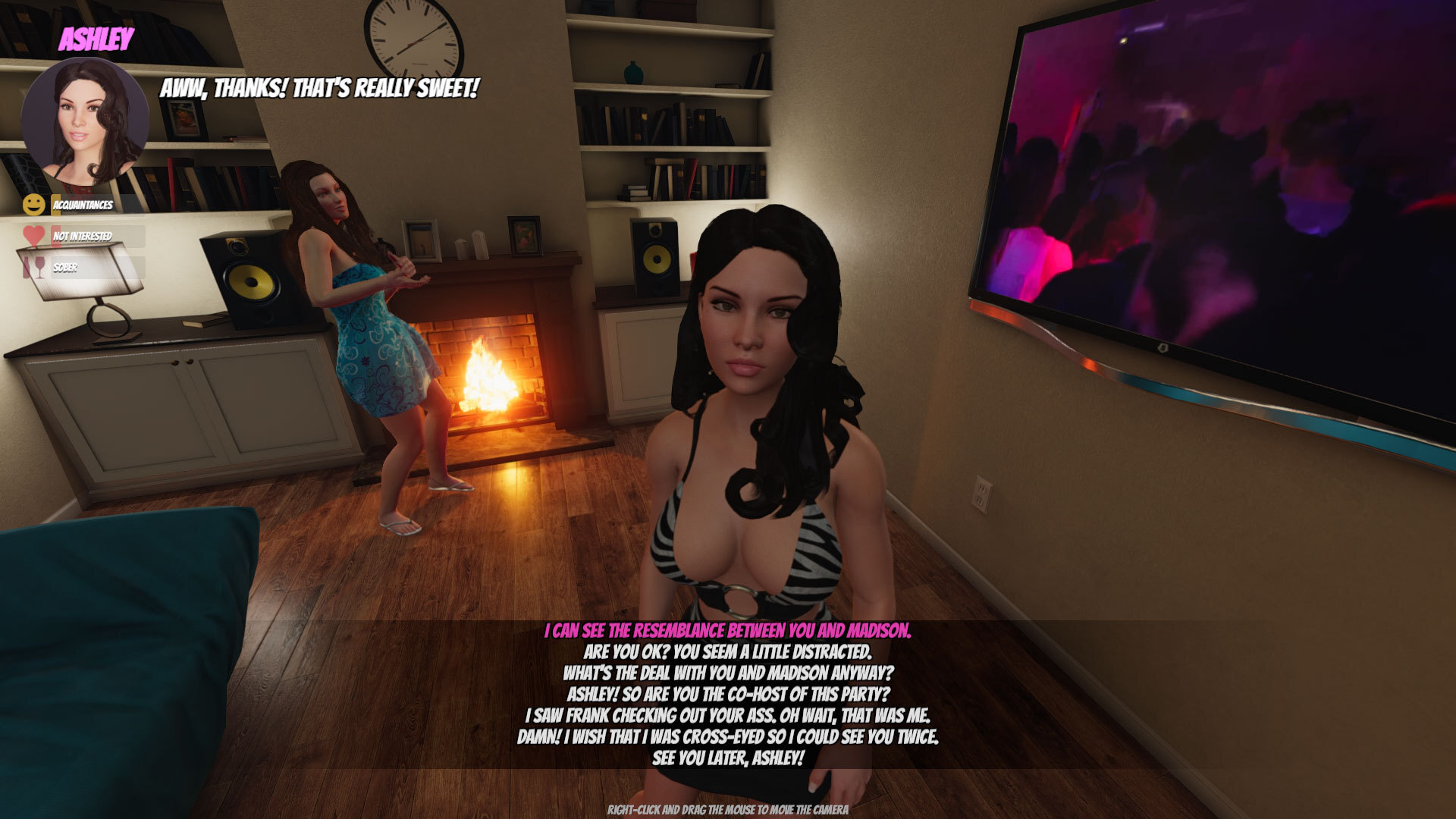We know you love to game, but do you know about the lengthy-as-all-hell process that goes into developing them? This is especially true for player choice games, like House Party, where players can choose between thousands of storylines to meet even more conclusions.
AI has invaded, and frankly, conquered the video game development space, allowing for the organic creation of “intelligent, reactive, creative characters, and emergent side quests” (Stuart, 2021). Companies like Ubisoft spend lots of energy researching AI – they see a gaming future where AI agents can actively participate in the narrative of their game and generate new missions (Stuart, 2021).
Newer AI technology studies how real human players behave while playing a game (Stuart, 2021). Basically, the bigger the player base, the more diverse the opportunities (Stuart, 2021). Likewise, at the School of Interactive Computing at the Georgia Institute of Technology, researchers Mark Riedl and Brent Harrison have been hard at work to combat this with “Quixote,” an AI that “teaches ‘value alignment’ to robots by training them to read stories, learn acceptable sequences of events and understand successful ways to behave in human societies” (La Bouff, 2016). Yeah, we’re basically teaching robots how to feel – I know, I know it’s weird and may feel unwise.
As Uncle Ben says, “with great power comes with great responsibility”; in the right hands, these AI’s could help improve cognitive functions. Studies show that player-choice games have a strong positive impact on players’ decision-making skills. Carey K. Morewedge, with the Harvard Business Review and a team of esteemed researchers, crafted video games that tested players’ biases (and the ability to overcome them). These games tested six main cognitive biases: bias blind spot, confirmation bias, fundamental attribution error, anchoring, projection, and representativeness (2015).
The study used two groups: the first watched an informational video about biases, and the other played a game called “Missing: The Pursuit of Terry Hughes,” where the players made decisions, were informed about how biased their findings were, and then were allowed to redo their choices (Morewedge, 2015). The results echoed loudly; the video-watchers reduced their biases by 19% immediately and 20% in the long term, while the gamers reduced theirs by 46% immediately and 35% over the long term (Morewedge, 2015) – crazy cool, right?
Weimin Toh conducted a similar study published in The International Journal of Computer Game Research, where 8 participants played player-choice games. These gamers were already familiar with their assigned games, which was by design; this allowed them to make informed decisions as they went (Toh, 2021).
The study found that player-choice games can be used for learning concepts that vary based on each individual (Toh, 2021). These concepts are (Toh, 2021):
Investment and gratification:
Immediate rewards often influence our behavior and are valued more than delayed rewards. The opposite can also be true, where the immediate gain is sacrificed for a delayed reward. When faced with the option to kill NPCs for a dramatic short-term gain or let them live for a longer-term gain, a participant decided to save the NPC. The shorter gain offered quicker upgrades, which she didn’t value as much as the longer-term gain of special powers.
Sunk gain/cost and loss aversion:
People avoid losses rather than gathering gains of similar value. When a participant found his character trapped in a basement surrounded by zombies, he decided he needed to jump ship and flee the scene because he knew he could not fight in the small space. In minimizing his losses (sunk cost: not killing zombies), he decided to run (scarcity of resources: space, things to survive).
Scarcity of resources:
When resources are low, “a scarcity mindset influences consumer decision-making.” When some participants faced an isolated player-choice character with only a dagger and a health kit, they were forced to change their gameplay around their resources. They reported using more stealthy methods of avoiding confrontation, which would otherwise not be their method of choice.
Cost-benefit analysis:
Cost-benefit analysis is a process that identifies, measures, and compares the costs and benefits of an investment endeavor. A participant said of a zombie playthrough, where they could only save one of two people, “it’s more practical to save a person with a more accurate shot who has more gun experience than saving someone that is technologically wiser.” In a zombie apocalypse, the participant argued, it makes more sense to have someone who can kill zombies than to have someone who can program.
Emotions and economic decision-making:
When one does not have sufficient resources (time, information, etc.) to make a logical decision, their “emotions, intuitions, heuristics, prior experiences, biases, and personalities” must kick in. One of Toh’s participants, when faced with equally negative responses to a conversation in her player-choice game, had to rely on previous interactions with the other characters to choose an answer.
In their entirety, player-choice games allow people to explore their decision-making processes. They make you question and align (and perhaps re-align) your value sets in larger-than-life situations. In this way, they thrust people out of their comfort zones and into situations they’d (most likely) never be in.
House Party is no exception. Our 3D comedy adventure game is built around player choice, allowing you to party how you please (Eek! Games, 2021). “House Party’s unique AI and scripting system allows the game to shape and mold its content around your choices – you’ll see something new or different each time you play” (Eek! Games, 2021).
Did you need a formal invitation, or something? Our House Party is open-invite!


Leave a Reply